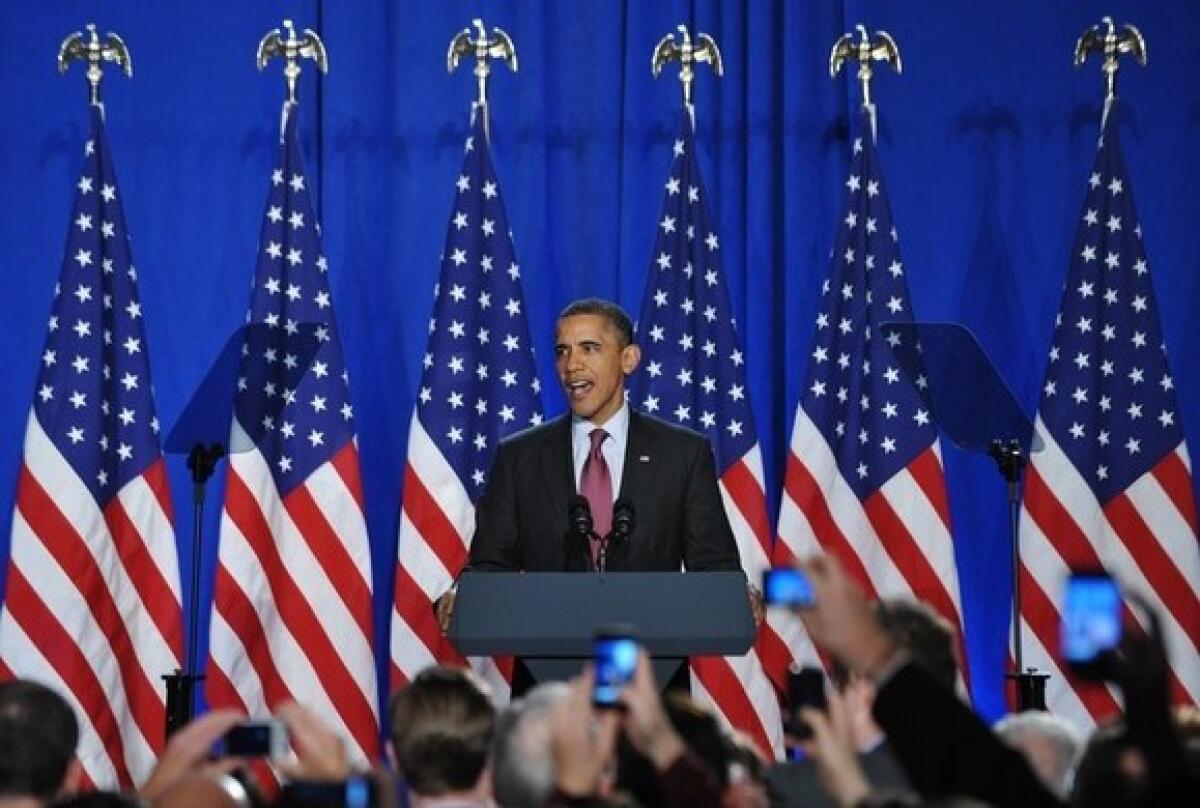House votes to end public funding of presidential campaigns

The House has passed legislation that would dismantle the system of public financing for presidential campaigns, a key element of post-Watergate reforms aimed at minimizing the role of money in politics.
Before the partisan 235-190 vote, the Republican majority hailed the move as a step toward fiscal discipline and an end to a broken and outdated system. Eliminating the system, which is supported by the $3 donations on tax forms, is expected to save roughly $500 million over the next five years.
The bill has little hope of advancing in the Senate and the White House issued a statement saying it strongly opposes the bill.
The Obama administration’s position is especially notable – given that the president was the first major party nominee to decide opt out of the public financing system.
In 2008, Obama called the system “broken” and declined to limit his spending to the caps that come with accepting public money. He raised an unprecedented amount from private sources and expected to do so again. As of early last month, the president had held twice as many fundraisers as his predecessor this year.
Still, in a statement issued Thursday, the Obama administration defended the public system, arguing that eliminating it “would expand the power of corporations and special interests in the nation’s elections. The bill would force many candidates into an endless cycle of fundraising at the expense of engagement with voters on the issues, and would place a premium on access to large donor or special interest support, narrowing the field of otherwise worthy candidates.”
The White House position is backed by a coalition of campaign reform groups, including Democracy 21, Common Cause and Public Citizen. The system isn’t irreparable, it’s just underfunded, they said.
“The presidential public financing system worked well for the nation for most of its existence, providing presidential candidates with the funds needed to mount viable candidacies without becoming indebted to special-interest influence money,” the groups wrote in a letter to House members.
“The system became outmoded in recent years as a result of Congress failing to take any action to update the system and respond to the increased costs of running a presidential campaign.”
More to Read
Sign up for Essential California
The most important California stories and recommendations in your inbox every morning.
You may occasionally receive promotional content from the Los Angeles Times.











